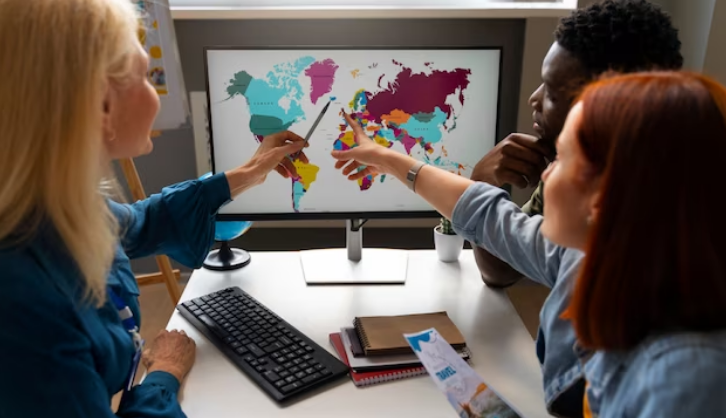In our ever-shrinking world, where communication spans continents in seconds, the ability to speak multiple languages has transcended the realm of a mere skill. It has become a beacon guiding us through the intricacies of our global society. In this era of interconnectedness, being multilingual is advantageous and imperative for fostering understanding, embracing diversity, and navigating the complex web of international relationships. The power of languages extends beyond words; it builds bridges, breaks down barriers, and serves as a universal connector in our diverse and globalised community. In this exploration, we delve into why speaking multiple languages matters in today’s dynamic and interconnected world, shedding light on its profound impact on personal growth, cognitive abilities, and professional opportunities.
1. The Power of Connection:
- At its core, speaking multiple languages is about building bridges between people and cultures. In a global society, where businesses, ideas, and experiences transcend geographical boundaries, being able to communicate in different languages becomes a tool for connection. It breaks down language barriers, fostering understanding, empathy, and collaboration.
- Consider the workplace, for instance. In companies with a multinational presence, individuals hailing from various linguistic backgrounds collaborate to achieve shared objectives. The ability to communicate in multiple languages facilitates smoother collaboration and creates an inclusive and harmonious work environment. It’s about more than just speaking words; it’s about understanding nuances, cultural references, and perspectives that may get lost in translation.
2. Enhancing Cognitive Abilities:
- Speaking multiple languages isn’t just about talking; it’s a workout for the brain. Several research studies have demonstrated that being bilingual improves cognitive functions, such as problem-solving and multitasking, and may even postpone the onset of conditions like Alzheimer’s disease. Learning and navigating between different linguistic systems create mental flexibility, improving overall cognitive function.
- Moreover, being multilingual has been linked to better memory retention. When you speak more than one language, your brain becomes adept at remembering and retrieving information, which can be advantageous in various aspects of life, from academics to professional endeavours.
3. Global Citizenship:
- Being a global citizen is more than just a catchphrase in today’s interconnected world. It’s a mindset that embraces diversity, values inclusivity, and recognises the interconnectedness of our planet. Speaking multiple languages is a tangible expression of global citizenship.
- By learning and using different languages, individuals become more adaptable and open-minded. They develop a more profound comprehension of diverse cultures, traditions, and perspectives, nurturing harmony within a backdrop of diversity. This global mindset is crucial for personal growth and collaboratively addressing global challenges.
4. Professional Opportunities:
- In the professional landscape, speaking multiple languages is a valuable asset. Many international companies prioritise hiring individuals with language skills, especially for roles that involve dealing with clients, partners, or stakeholders worldwide.
- Moreover, being multilingual in a competitive job market can give individuals a significant edge. It opens up opportunities for international assignments, business travel, and roles that require communication across borders. As companies expand their operations globally, the demand for employees who can navigate linguistic and cultural nuances continues to rise.
Conclusion
As we navigate the intricate tapestry of our global society, the significance of speaking multiple languages becomes increasingly apparent. It is a tool for connection, a cognitive enhancer, and a key to unlocking doors in our professional journeys. Cultivating a global perspective, multilingualism encourages harmony amidst diversity, creating a world where cultural distinctions fade and mutual understanding takes precedence. In a world that values collaboration, inclusivity, and open-mindedness, the ability to communicate across languages is not just a skill; it’s a transformative force. So, let us celebrate the linguistic mosaic that shapes our interconnected world, recognising that speaking multiple languages is not merely an asset but an essential element of thriving in our global society. It’s time to embrace the opportunities, broaden our horizons, and journey towards a future where language is the bridge that unites us all.







